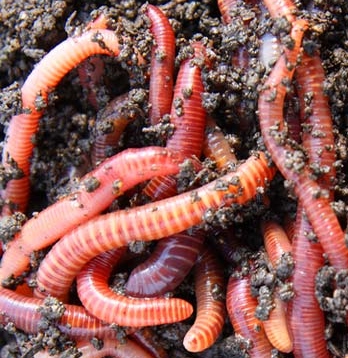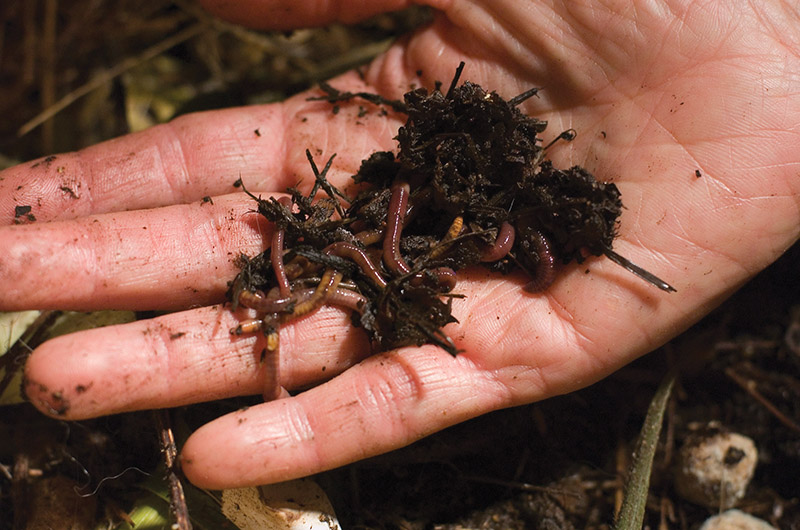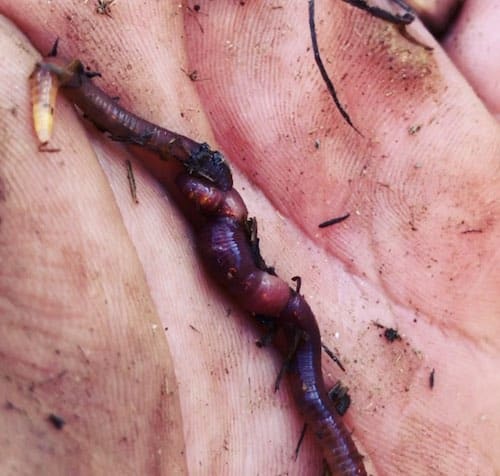Organic red worms: Support a greener planet
Organic red worms: Support a greener planet
Blog Article
Why Red Wigglers Are Essential for Organic Farming
Red wigglers play a pivotal function in natural farming, mostly through their one-of-a-kind capability to decompose natural products and improve soil health and wellness. The extent of their effect on farming methods and dirt biology raises intriguing inquiries about the future of natural farming.
Duty of Red Wigglers in Soil Wellness

Furthermore, red wigglers boost soil structure by producing networks as they burrow. These networks boost oygenation and water seepage, advertising a much healthier origin setting. Their task also helps in keeping optimum moisture levels, which is crucial for healthy plant development.

Advantages of Worm Spreadings
Worm castings, the nutrient-rich excrement created by red wigglers, function as a powerful modification for natural farming. These spreadings are brimming with crucial nutrients such as nitrogen, phosphorus, and potassium, which are important for plant development. Unlike artificial fertilizers, worm spreadings launch nutrients slowly, supplying a stable supply with time and reducing the danger of nutrient leaching and drainage.
Furthermore, worm spreadings enhance dirt structure and aeration, advertising healthier root systems. Their high raw material content improves wetness retention, enabling plants to better hold up against drought problems. Furthermore, worm spreadings have helpful microbes that support plant health and wellness by suppressing microorganisms and boosting nutrient uptake.
The application of worm castings can result in boosted crop returns and boosted quality of produce, making them a vital source for natural farmers. Their use also straightens with lasting farming techniques, adding to soil fertility without the negative ecological impacts related to chemical plant foods. On the whole, the incorporation of worm spreadings right into farming methods promotes a much more resistant and effective ecosystem, highlighting the relevance of red wigglers in natural farming systems.

Enhancing Nutrient Cycling
(red wigglers)Vitamins and mineral cycling is a crucial process in chemical-free farming, and the integration of red wigglers plays a crucial duty in boosting this cycle. These earthworms contribute significantly to the breakdown of raw material, facilitating the change of intricate organic products into less complex, more available nutrients for plants. As red wigglers eat decaying raw material, they eliminate nutrient-rich spreadings, which are including valuable microorganisms. This microbial activity further help in the disintegration process, making certain that vital nutrients are easily available for plant uptake.
Additionally, red wigglers aid to accelerate the mineralization of nutrients, converting them from inert forms into bioavailable kinds that plants can take in. This procedure is important for preserving dirt fertility and advertising healthy and balanced plant growth. The existence of red wigglers also motivates a diverse soil community, cultivating a balance of nutrients that sustains various plant types.
Improving Dirt Framework
The improvement of soil structure is important for promoting a healthy and balanced agricultural community, and the activity of red wigglers considerably adds to this enhancement. These earthworms play a necessary duty in aerating the soil and producing a network of networks that assist in water seepage and origin infiltration. As they burrow via the dirt, red wigglers damage up compressed layers, allowing for better oxygen exchange and advertising look at this website microbial task.
Additionally, the raw material created from their waste, referred to as vermicast, improves soil aggregation. This process creates stable clumps of dirt fragments, boosting dirt porosity and minimizing erosion (red wigglers). The visibility of red wigglers also urges the advancement of helpful fungal networks, which are vital for nutrient uptake by plants
Encouraging Sustainable Practices
Incorporating red wigglers right into organic farming methods not only improves soil wellness but also advertises sustainable agricultural approaches. These earthworms play a crucial function in nutrient biking, transforming natural waste into valuable garden compost that enriches the dirt. By using red wigglers, farmers can efficiently lower reliance on synthetic fertilizers, thereby lessening chemical overflow and its harmful effects on ecosystems.
Moreover, the incorporation of red wigglers urges the practice of reusing organic products, such as kitchen scraps and farm waste. This waste decrease method not only reduces disposal expenses however also fosters a closed-loop system where nutrients are continually gone back to the dirt (red wigglers). Such methods are necessary in alleviating climate adjustment, as they enhance carbon sequestration and decrease greenhouse gas exhausts
Furthermore, red wigglers boost water retention in the soil, which is important in times of dry spell. Their burrowing activities produce channels that enable water to pass through deeper into the ground, therefore advertising efficient water use. Eventually, incorporating red wigglers into chemical-free farming not only sustains biodiversity yet also aligns with the principles of lasting agriculture, offering an alternative technique to food manufacturing.
Final Thought
In verdict, red wigglers play a crucial function in organic farming by considerably enhancing soil health and wellness and fertility. Therefore, the integration of red wigglers right into agricultural practices is vital for advertising sustainability and boosting total dirt high quality.
Report this page